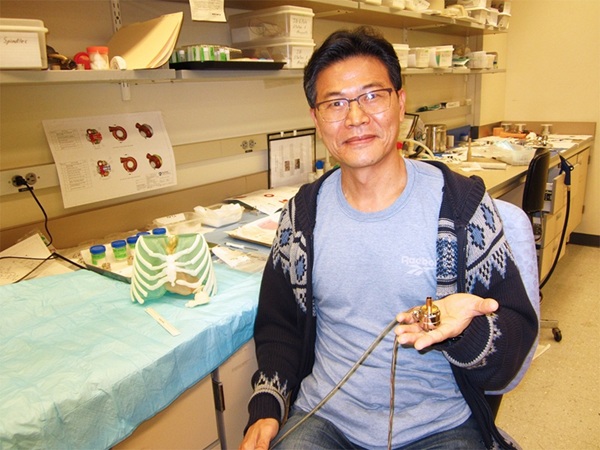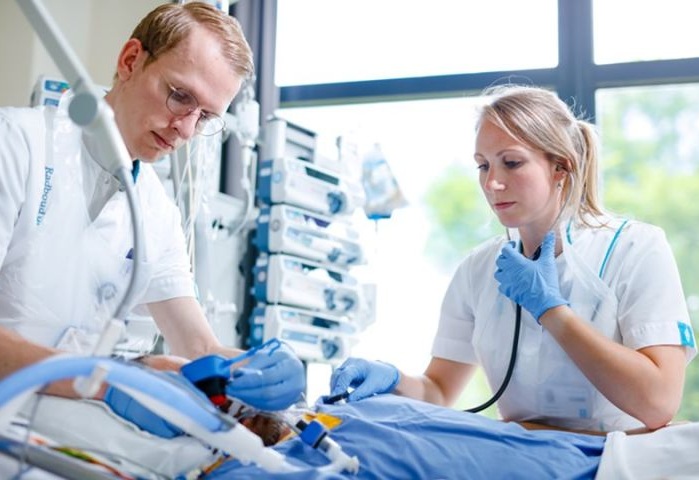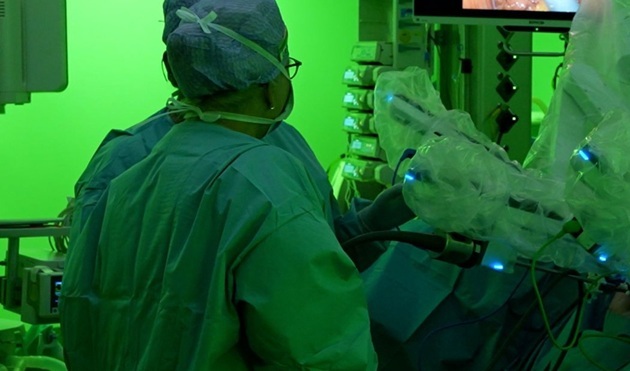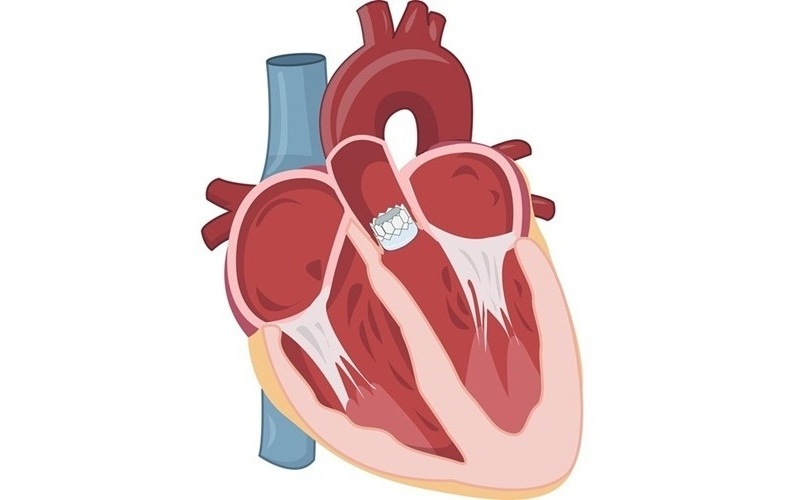Blocking Folate Metabolism with Oral, Prophylactic Drugs Could Reduce Viral Replication in SARS-CoV-2 Infected Cells
|
By HospiMedica International staff writers Posted on 16 Mar 2021 |

Illustration
Insight provided by a new study into how SARS-CoV-2 hijacks two key metabolic pathways to rapidly replicate in host cells suggest that blocking folate metabolism with oral, prophylactic drugs could reduce viral replication in the infected cells.
Investigators from the Brigham and Women’s Hospital (Boston, MA, USA), Massachusetts General Hospital (MGH; Boston, MA, USA), and the Broad Institute (Cambridge, MA, USA) who studied cultured cells shortly after infecting them with SARS-CoV-2 have gained more insight into the metabolic pathways co-opted by the virus. The findings highlight the potential therapeutic benefit of drugs such as methotrexate, which inhibit folate and one-carbon metabolic pathways appropriated by the virus.
When SARS-CoV-2, the virus that causes COVID-19, infects a human cell, it quickly begins to replicate by seizing the cell’s existing metabolic machinery. The infected cells churn out thousands of viral genomes and proteins while halting the production of their own resources. To identify which metabolic pathways to target, the researchers obtained samples of the virus and cultivated them in a highly protected facility called a BSL-3 laboratory.
In analyzing the amino acids and thousands of chemical metabolites produced by the cells, the researchers observed that infected cells had depleted stores of glucose and folate. They demonstrated that the SARS-CoV-2 virus diverts building blocks from glucose production to the assembly of purine bases, which are necessary for creating large amounts of viral RNA. Additionally, they found that the 1-carbon pathway used to metabolize folate was hyperactive, thus supplying the virus with more carbon groups for making bases for DNA and RNA.
Drugs that inhibit folate metabolism, like methotrexate, are often used to treat autoimmune conditions like arthritis and could be therapeutic candidates for COVID-19. Methotrexate is currently being assessed as a treatment for the inflammation that accompanies more advanced COVID-19 infections, but the researchers suggest that it could also be beneficial early on. Their study also found that it could offer a synergistic effect when administered with the anti-viral drug remdesivir. Methotrexate’s immune-suppressing properties could make its proper administration as a prophylactic challenging, however. Researchers would need to determine how to maximize the drug’s antiviral effects without significantly compromising a patient’s natural immune response. Still, the researchers have pointed out that oral antivirals are an important addition to an arsenal of therapies for COVID-19, serving both as an immediate treatment for infection as well as a defense against new variants and other coronaviruses.
“One of the things we’re lacking in this pandemic is a pill that can be taken orally, as a prophylactic agent, before someone is hospitalized or even before they’re infected,” said corresponding author Benjamin Gewurz, MD, PhD, of the Division of Infectious Diseases at the Brigham. “Monoclonal antibodies have a lot of promise but need to be given intravenously. Blocking the metabolism pathways that viruses rely on to replicate could be a new strategy for treating patients at an early timepoint.”
“We’re hoping that, ultimately, we can find a way of preventing viruses from using cells’ metabolism pathways to replicate themselves because that could limit the ability of viruses to evolve resistance,” added Gewurz. “We’re starting to see new viral variants, and we’re hoping that we can stay ahead of that - treating patients before the virus has the chance to make copies of itself that could become resistant to antibodies.”
Related Links:
Brigham and Women’s Hospital
Massachusetts General Hospital
Broad Institute
Investigators from the Brigham and Women’s Hospital (Boston, MA, USA), Massachusetts General Hospital (MGH; Boston, MA, USA), and the Broad Institute (Cambridge, MA, USA) who studied cultured cells shortly after infecting them with SARS-CoV-2 have gained more insight into the metabolic pathways co-opted by the virus. The findings highlight the potential therapeutic benefit of drugs such as methotrexate, which inhibit folate and one-carbon metabolic pathways appropriated by the virus.
When SARS-CoV-2, the virus that causes COVID-19, infects a human cell, it quickly begins to replicate by seizing the cell’s existing metabolic machinery. The infected cells churn out thousands of viral genomes and proteins while halting the production of their own resources. To identify which metabolic pathways to target, the researchers obtained samples of the virus and cultivated them in a highly protected facility called a BSL-3 laboratory.
In analyzing the amino acids and thousands of chemical metabolites produced by the cells, the researchers observed that infected cells had depleted stores of glucose and folate. They demonstrated that the SARS-CoV-2 virus diverts building blocks from glucose production to the assembly of purine bases, which are necessary for creating large amounts of viral RNA. Additionally, they found that the 1-carbon pathway used to metabolize folate was hyperactive, thus supplying the virus with more carbon groups for making bases for DNA and RNA.
Drugs that inhibit folate metabolism, like methotrexate, are often used to treat autoimmune conditions like arthritis and could be therapeutic candidates for COVID-19. Methotrexate is currently being assessed as a treatment for the inflammation that accompanies more advanced COVID-19 infections, but the researchers suggest that it could also be beneficial early on. Their study also found that it could offer a synergistic effect when administered with the anti-viral drug remdesivir. Methotrexate’s immune-suppressing properties could make its proper administration as a prophylactic challenging, however. Researchers would need to determine how to maximize the drug’s antiviral effects without significantly compromising a patient’s natural immune response. Still, the researchers have pointed out that oral antivirals are an important addition to an arsenal of therapies for COVID-19, serving both as an immediate treatment for infection as well as a defense against new variants and other coronaviruses.
“One of the things we’re lacking in this pandemic is a pill that can be taken orally, as a prophylactic agent, before someone is hospitalized or even before they’re infected,” said corresponding author Benjamin Gewurz, MD, PhD, of the Division of Infectious Diseases at the Brigham. “Monoclonal antibodies have a lot of promise but need to be given intravenously. Blocking the metabolism pathways that viruses rely on to replicate could be a new strategy for treating patients at an early timepoint.”
“We’re hoping that, ultimately, we can find a way of preventing viruses from using cells’ metabolism pathways to replicate themselves because that could limit the ability of viruses to evolve resistance,” added Gewurz. “We’re starting to see new viral variants, and we’re hoping that we can stay ahead of that - treating patients before the virus has the chance to make copies of itself that could become resistant to antibodies.”
Related Links:
Brigham and Women’s Hospital
Massachusetts General Hospital
Broad Institute
Latest COVID-19 News
- Low-Cost System Detects SARS-CoV-2 Virus in Hospital Air Using High-Tech Bubbles
- World's First Inhalable COVID-19 Vaccine Approved in China
- COVID-19 Vaccine Patch Fights SARS-CoV-2 Variants Better than Needles
- Blood Viscosity Testing Can Predict Risk of Death in Hospitalized COVID-19 Patients
- ‘Covid Computer’ Uses AI to Detect COVID-19 from Chest CT Scans
- MRI Lung-Imaging Technique Shows Cause of Long-COVID Symptoms
- Chest CT Scans of COVID-19 Patients Could Help Distinguish Between SARS-CoV-2 Variants
- Specialized MRI Detects Lung Abnormalities in Non-Hospitalized Long COVID Patients
- AI Algorithm Identifies Hospitalized Patients at Highest Risk of Dying From COVID-19
- Sweat Sensor Detects Key Biomarkers That Provide Early Warning of COVID-19 and Flu
- Study Assesses Impact of COVID-19 on Ventilation/Perfusion Scintigraphy
- CT Imaging Study Finds Vaccination Reduces Risk of COVID-19 Associated Pulmonary Embolism
- Third Day in Hospital a ‘Tipping Point’ in Severity of COVID-19 Pneumonia
- Longer Interval Between COVID-19 Vaccines Generates Up to Nine Times as Many Antibodies
- AI Model for Monitoring COVID-19 Predicts Mortality Within First 30 Days of Admission
- AI Predicts COVID Prognosis at Near-Expert Level Based Off CT Scans
Channels
Critical Care
view channel
Breathable Electronic Skin Paves Way for Next-Generation Wearable Devices
Electronic skin devices are designed to adhere closely to the human body to monitor health and biosignals, but long-term use often leads to skin irritation caused by trapped sweat and poor breathability.... Read more
AI Transforming Colon Cancer Diagnosis
Colon cancer remains one of the most common and deadly cancers worldwide, with diagnosis often relying on time-consuming procedures such as colonoscopy and histopathological analysis. Delays or inaccuracies... Read more
Ventricular Assist Device Offers Long-Term Use in Children Waiting for Donor Heart
Children with severe heart failure often face long and dangerous waits for a donor heart, with limited options to keep them stable during this period. For patients between the ages of one and 11, there... Read more
Precision Approach Improves Immunotherapy Effectiveness for ICU Patients with Sepsis
Sepsis occurs when the immune system responds abnormally to an infection, often triggering life-threatening organ failure. Despite affecting around 49 million people globally each year and causing approximately... Read moreSurgical Techniques
view channel
Minimally Invasive Surgery Proven Safe and Effective for Complex ‘Whipple’ Procedure
Tumors of the pancreatic head often require a highly complex operation known as pancreatoduodenectomy or the Whipple procedure. This surgery involves removing multiple structures and creating several internal... Read more
Catheter-Based Procedures Offer Less Invasive Option for Treatment of Valvular Disease
Valvular heart disease, caused by tight or leaky valves between heart chambers, affects up to 10% of older adults and leads to more than 120,000 deaths globally each year. Traditional open-heart surgery... Read morePatient Care
view channel
Revolutionary Automatic IV-Line Flushing Device to Enhance Infusion Care
More than 80% of in-hospital patients receive intravenous (IV) therapy. Every dose of IV medicine delivered in a small volume (<250 mL) infusion bag should be followed by subsequent flushing to ensure... Read more
VR Training Tool Combats Contamination of Portable Medical Equipment
Healthcare-associated infections (HAIs) impact one in every 31 patients, cause nearly 100,000 deaths each year, and cost USD 28.4 billion in direct medical expenses. Notably, up to 75% of these infections... Read more
Portable Biosensor Platform to Reduce Hospital-Acquired Infections
Approximately 4 million patients in the European Union acquire healthcare-associated infections (HAIs) or nosocomial infections each year, with around 37,000 deaths directly resulting from these infections,... Read moreFirst-Of-Its-Kind Portable Germicidal Light Technology Disinfects High-Touch Clinical Surfaces in Seconds
Reducing healthcare-acquired infections (HAIs) remains a pressing issue within global healthcare systems. In the United States alone, 1.7 million patients contract HAIs annually, leading to approximately... Read moreHealth IT
view channel
EMR-Based Tool Predicts Graft Failure After Kidney Transplant
Kidney transplantation offers patients with end-stage kidney disease longer survival and better quality of life than dialysis, yet graft failure remains a major challenge. Although a successful transplant... Read more
Printable Molecule-Selective Nanoparticles Enable Mass Production of Wearable Biosensors
The future of medicine is likely to focus on the personalization of healthcare—understanding exactly what an individual requires and delivering the appropriate combination of nutrients, metabolites, and... Read moreBusiness
view channel
Philips and Masimo Partner to Advance Patient Monitoring Measurement Technologies
Royal Philips (Amsterdam, Netherlands) and Masimo (Irvine, California, USA) have renewed their multi-year strategic collaboration, combining Philips’ expertise in patient monitoring with Masimo’s noninvasive... Read more
B. Braun Acquires Digital Microsurgery Company True Digital Surgery
The high-end microsurgery market in neurosurgery, spine, and ENT is undergoing a significant transformation. Traditional analog microscopes are giving way to digital exoscopes, which provide improved visualization,... Read more
CMEF 2025 to Promote Holistic and High-Quality Development of Medical and Health Industry
The 92nd China International Medical Equipment Fair (CMEF 2025) Autumn Exhibition is scheduled to be held from September 26 to 29 at the China Import and Export Fair Complex (Canton Fair Complex) in Guangzhou.... Read more














